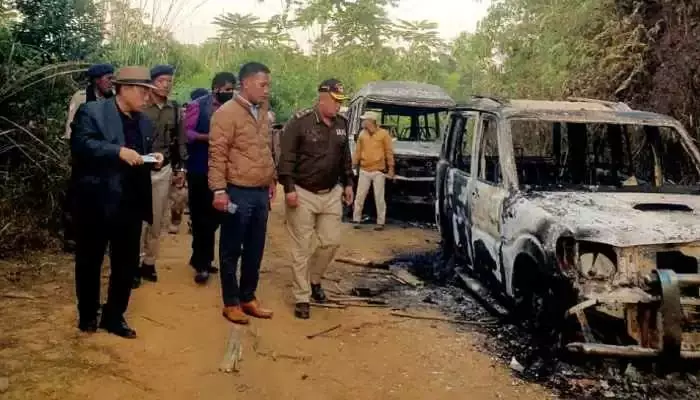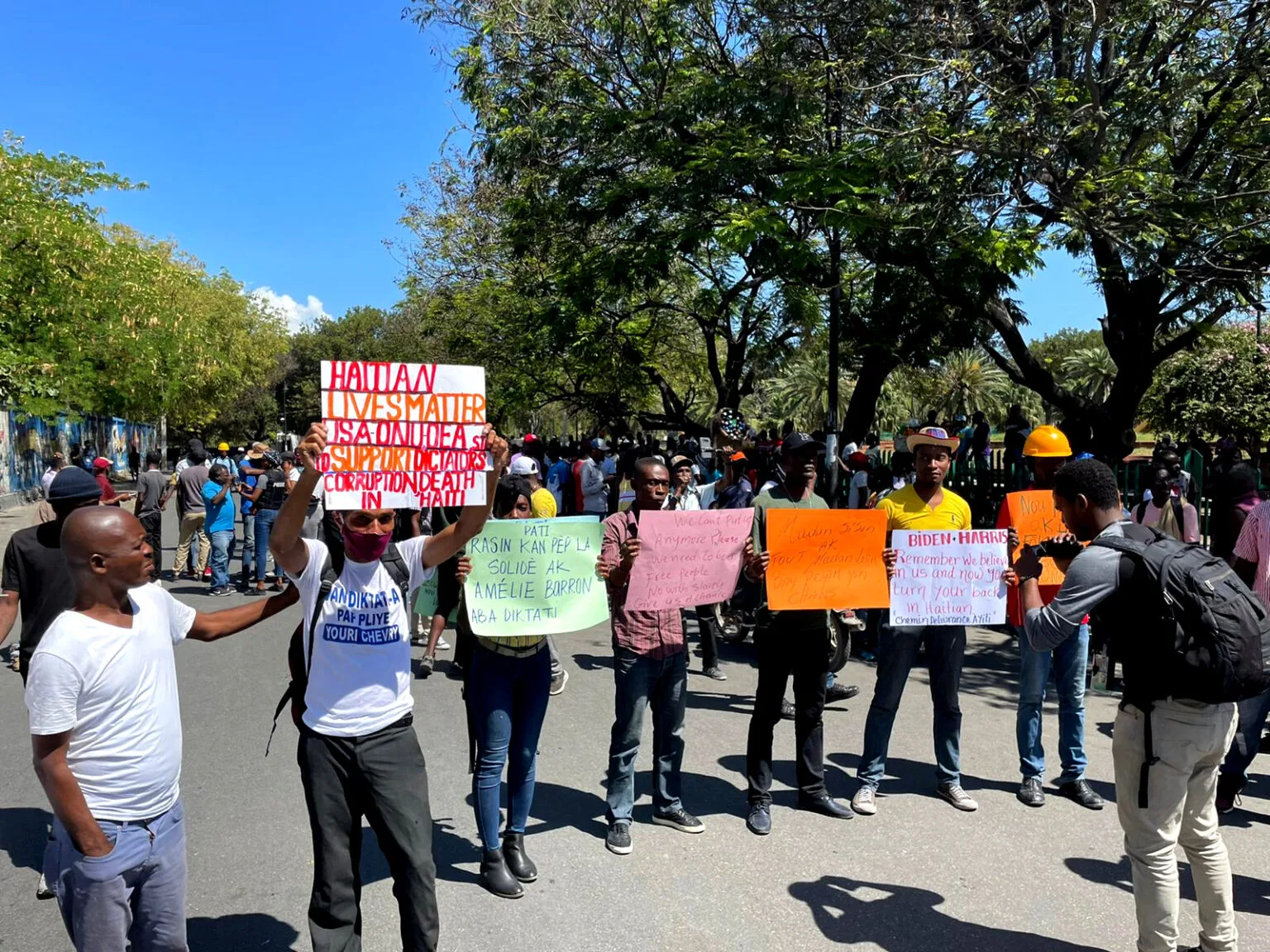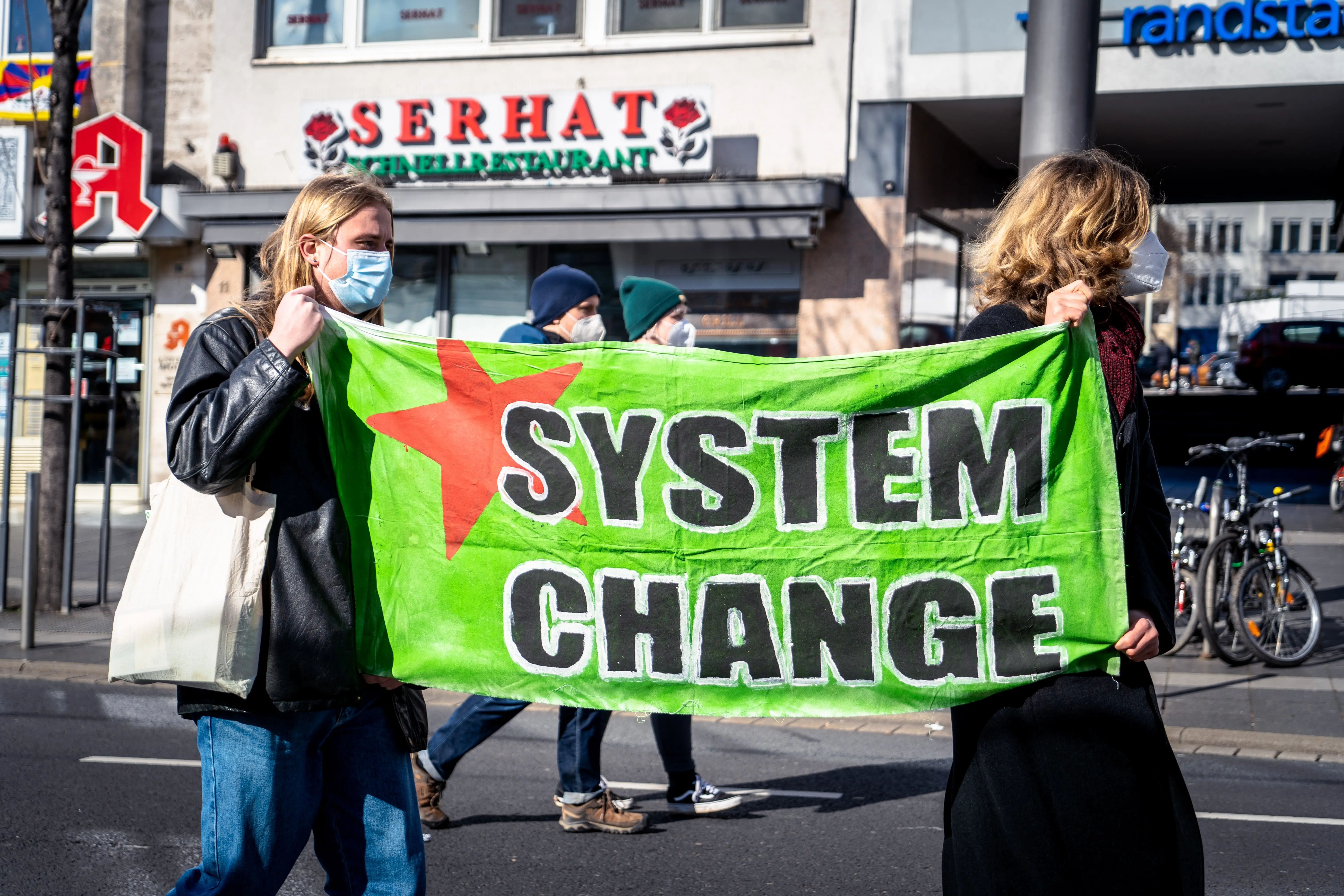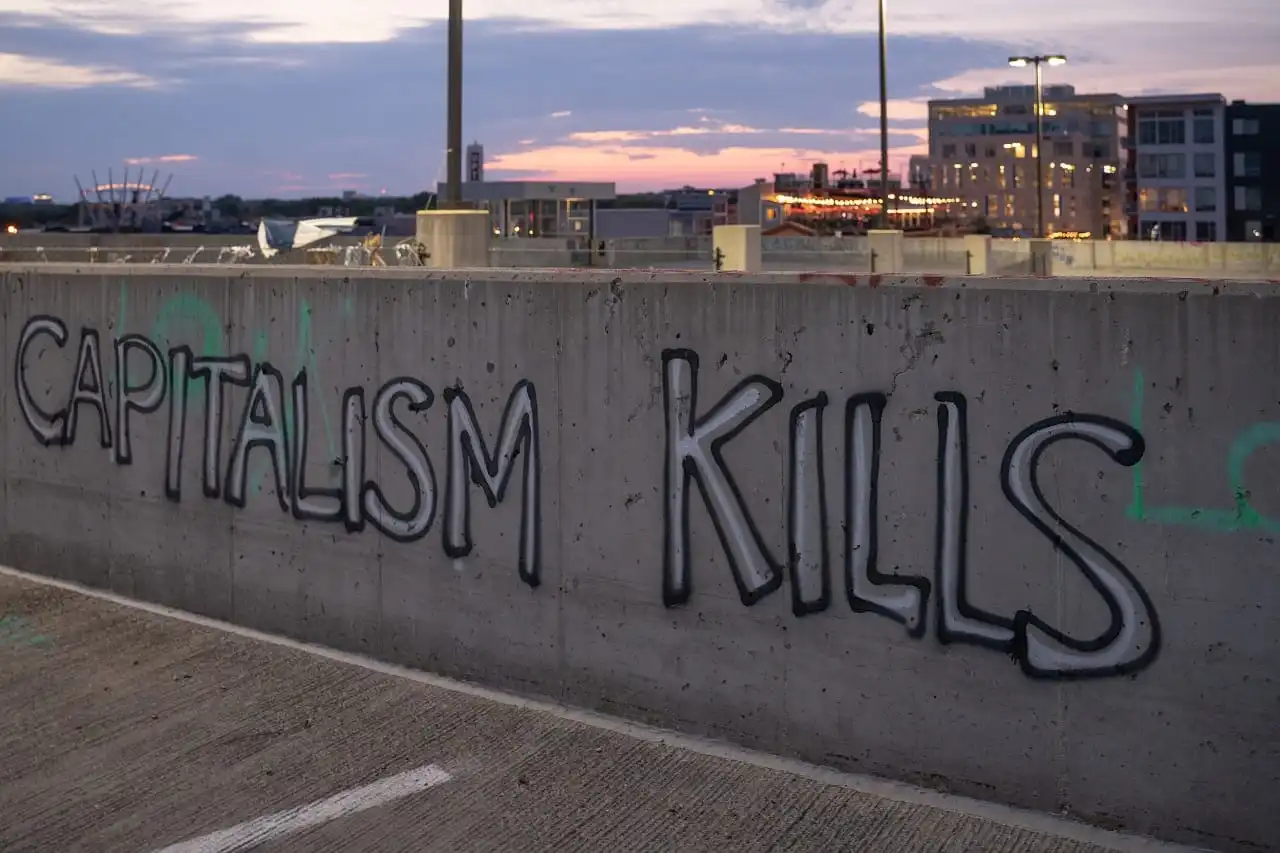COVID 19 has negatively impacted every living human being whether they are old or young. However, COVID-19 has been a particularly disastrous disease for elderly people. In the United States older people were lethally discriminated against during the first year of the COVID pandemic. COVID is not and has never been a purely “natural” disaster: hundreds of thousands of elderly Americans lost their lives to what in fact was “social murder.” However, the capitalist media during the first year of COVID and up to today has been effectively silent on the pandemic’s staggering toll taken against older Americans.
Introduction
The so-called infodemic surrounding the current COVID-19 pandemic continues to overwhelm us all. Tens of thousands of COVID-related scholarly papers, studies, learned editorials and medical research reports have been published in hardcopy and online over the course of the last year (plus uncounted millions of words of ordinary published text). As of this writing, in mid-2021, this tide seems to be nowhere near cresting, and justifiably so. COVID-19 is, in fact, the greatest and most lethal social injustice perpetrated against the elder population of the United States since legalized slavery. “Silence is complicity.”
A Disciplinary Critique
At least in the United States, COVID-19 has been painted in mainstream public opinion and even in medical and academic media as a “black swan” event, a stroke of evil fate. In fact, COVID-19 in the United States is not a purely “natural” disaster. Virtually every death from COVID-19 in the United States was at least in principle preventable. And once we acknowledge that the immense death toll of the pandemic in the United States was almost entirely preventable, what we are dealing with is mass “social murder,” a crime against humanity of historic proportions. One of the most likely reasons why the COVID-19 pandemic was allowed to “go viral” as it did is because during its first year COVID was heavily politicized and rhetorically constructed as a disease of the elderly. Given the overwhelming ageism of twenty-first century American capitalism, and consequential negative public attitudes toward seniors, an eventual mass “senicide/geronticide” like that of 2020-21 may not have been inevitable, but it is nevertheless unsurprising. Justice for the hundreds of thousands of senior Americans who have needlessly perished and who continue to be lost to COVID 19 may be best promoted not only by increasing vaccination efforts, but by changing the system itself, i.e., by publicly challenging the pervading ageism that has so thoroughly characterized early twenty-first-century American culture and consciousness, and by demanding public reparations for American COVID-19 victims and their survivors.
In this article our focus is retrospective, specifically examining the pre-vaccination stage of the pandemic, the period from March, 2020 through the beginning of 2021 when the highest COVID death rates were recorded in the United States. Later issues such as disparities in vaccination availability, anti-vaxxer lunacy and variant infections will not be examined, since these issues are still at a very early stage at the time of this writing, and will be much more appropriate for later study by activists in the post-pandemic period to come.
COVID-19: A “Black Swan?”
As of this writing (August, 2021), the 2020-2021 COVID-19 pandemic in the United States has reportedly resulted in the death of more than half a million Americans, and a generally accepted figure is that nearly 80% of all COVID-19–related deaths in the pre-vaccination period were those age 65 and older. Thus, the true death toll of COVID among American seniors during the first year of the pandemic almost certainly exceeded 400,000. With good reason, a February 18, 2021 headline in the Washington Post described the reality of COVID-19 in the United States as “A Mass-Casualty Event Every Day.”
Yet, in stark contrast to the United States, Viet Nam (a socialist nation with a population roughly 1/3 as large as that of the United States, and a vastly less developed healthcare sector) reported only 35 total deaths from COVID-19 from January 3, 2020, up to April, 2021. Australia reported only 909 total COVID deaths during that same period, and New Zealand reported only 26 deaths, all figures from the World Health Organization’s WHO Health Emergency Dashboard as of 10 April 2021. One must note that the last two figures are from highly developed, English-speaking capitalist countries with standards of living and norms of personal freedom comparable to those in the United States.
Pandemic casualty rates for the rest of the world’s countries and territories varied widely between these two extremes, but as is well known, the United States, even as of this writing, remains one of the world’s “COVID hotspots,” with death and infection rates that were often significantly higher than those of any other nation on Earth. Yet, as one American expert warned, “those who died cannot and should not be summarized. They must not become lines on squared paper. They must not become rates used to argue differences between nations.”
It is not the goal of this article, nor is it within the field of expertise of its authors, to tease out the granular details of the political or medical “whys” and “hows” of such enormous disparities between countries. However, the main point we wish to emphasize at this relatively early date is that the immense toll of the pandemic on older Americans never was and still is not simply a “black swan” event, the greatest of many “acts of God,” unavoidable natural disasters like Hurricane Katrina, the San Francisco Earthquake of 1906 or the Florida condo collapse of 2021 that have befallen the United States over the course of its history. As medical author Richard Horton writes, “It is our task to resist the biologicalisation of this disease and instead to insist on a social and political critique. It is our task to understand what this disease means to the lives of those it has afflicted and to use that understanding not only to change our perspective on the world but also to change the world itself. …’Our critique does not have to choose between militancy and lucidity.”
It is in this spirit, after observing the shocking disparity in pre-vaccine death rates between countries, that we argue that virtually every American COVID death was what Friedrich Engels describes as “social murder.” Here the “deed is murder just as surely as the deed of the single individual; disguised, malicious murder, murder against which none can defend himself, which does not seem what it is, because no man sees the murderer, because the death of the victim seems a natural one, since the offence is more one of omission than of commission. But murder it remains” (from Engels, as quoted. by leftist author Chris Hedges in his article, “The Age of Social Murder.”). The longer we as activists continue to ignore this fact, the greater is the magnitude of our own guilty silence.
A Great Silence
In his most recent book, The Covid-19 Catastrophe: What’s Gone Wrong and How to Stop it Happening Again, Richard Horton quotes Arundhati Roy as describing the COVID-19 pandemic as nothing less than “a portal, a gateway between one world and the next.” And as activist scholar Juan Meneses argues in his book, Resisting Dialogue, in order to understand the power dynamic of such a key moment it is “crucial” for us to identify “who can speak up and who cannot, what is said and what remains unsaid, what can be said in what circumstances, who can remain silent and what their silence means…” In this crucial moment of the COVID-19 pandemic, it is essential that we as activists examine the extent, rationale and context of our own failure to sufficiently speak up in a timely manner, and what our silence means.
Gerontocide
“Geronticide” (also spelled “Gerontocide”) is the deliberate or knowing slaughter of the elderly. “Senicide,” has the same meaning as “geronticide.” But the idea that ageism or even senicide/gerontocide might somehow intersect with COVID-19 is the subject of a political silence of shameful proportions for a political movement that is traditionally proud of its vigorous defense of social justice and opposition to racism, sexism, homophobia, discrimination, and inequities of all kinds, both small and large, personal and public.

It is worthy of note that in contrast to leftists’ relative silence on the subject to date, Google lists almost 300,000 popular-level references under “Senicide and COVID,” over 6200 entries under “Geronticide and COVID,” and a multitude of other COVID-related sources under the alternate spelling, “Gerontocide.” It could not be determined what percentage of these popular-level sources deal with the United States as opposed to other countries or the world but it seems evident that the American public opinion toward the idea that COVID-19 may be an intentional or criminally negligent slaughter of elders has been, over the last year, considerably ahead of that of most left activists.
Ageism and gerontocide
“Ageism” is a concept that was originally identified by that name decades ago by N. Butler, but sadly, remains an ongoing social injustice that is seldom mentioned by left public activists, even more than half a century later. In her book, Ending Ageism, or How Not to Shoot Old People (2017), ageing activist Margaret Morganroth Guillette describes and condemns ageism, which she describes as “the infliction of suffering by mere fact of birthdate… the least censured, the most acceptable and unnoticed of the cruel prejudices.” Guillette takes an approach based on what she calls “age theory,” and argues “that people are aged by culture and that decline is the narrative about aging-past-youth systematically taught us from on high.” Unfortunately, as Guillette points out, “the struggle against ageism still has no manifesto like the Seneca Falls ‘declaration of Sentiments,’ no stirring canonical speech like Martin Luther King Jr.’s ‘I have a dream.’” Instead, she focuses on denouncing what she describes as “the malign discharges of social systems and their sobering subjective impacts.”
Gerontology scholars Barrett, Anne E., Cherish Michael, and Irene Padavic describe as “Calculated Ageism,” that which one may now identify as by far the greatest of these “malign discharges:” American’s thoroughly ageist public response to COVID-19, or more specifically, American capitalism’s eager willingness for “Generational Sacrifice.” American journalist Randi Kreiss sounds a very similar alarm in her July, 2020 opinion piece, “Unspoken Conspiracy to Sacrifice Elders.” She writes that “Sacrificing Grandma and Grandpa seems to be the price many are willing to pay in order sit at a bar, attend a rally or party with friends… [N]ow, in the United States of America, the bean counters are accepting a certain number of deaths in exchange for opening the local tattoo parlors. I never imagined senicide as part of the American experience. Until now. … I hear the unspoken calculus that a boost to the economy will require a culling of the over-60 population.”
Richard Goldstein, former editor of the Village Voice newspaper, calls out American gerontocide still more clearly in his explosive December, 2020 polemic published in the leftist magazine Jacobin. In his article, Goldstein, writing as an interested older person himself, pulls no punches: “Just as AIDS revealed that certain groups were subject to a silence which equaled death, this pandemic has exposed another sort of relationship between stigma and risk. It has lifted a rock on the nation, revealing all the maggots wriggling beneath. Ageism is one of them. It is a bias often hidden behind gestures of respect. Yet it shapes the quality of life for nearly all old people, and in this emergency, it is a killer.” And, as gerontology scholars Reuben Ng, Ting Yu Joanne Chow , and Wenshu Yang warn, COVID-19 has been allowed to provoke “increasing ageism” all around the world.
What can be done now?
Contrary to what one might be led to believe from decades of popular American crime dramas and television “cop shows,” a crime is not “solved” or “resolved” (i.e., dissolved) simply if the real perpetrator is found, convicted and punished. Not even one of the hundreds of thousands of American fatalities of the COVID-19 geronticide will be brought back to life if the key mis-decisions that allowed Coronavirus to “go viral” in the United States are ever positively identified, not even in the unlikely event that responsible decision-makers are finally held responsible before the bar of justice.
However, at least one activist organization in the United States, a small, independent group of public health and administration scholars calling itself “Marked by COVID,” has taken an initiative to insist that any real “justice” for COVID-19 must necessarily include “Provid[ing] reparations to victims and families of victims of COVID-19 for the willful negligence of our elected officials, and repay[ing] essential workers for their service and sacrifice during the pandemic” as part of a proposed “five-R plan” of “Response, Recovery, Restitution, Resiliency and Recognition.” Sadly, this initiative has been almost totally ignored by the larger left and progressive movement in the United States.
Demands for material reparations for the crimes of capitalism are radically empowering, since such demands recognize the revolutionary transformative power of human and social agency as opposed to the essential passivity of waiting for glacially slow forces like constitutional, cultural, demographic or generational change to dissolve human social injustices. In fact, we, the people, have both the effective power and the ethical obligation to decide what kind of future we will create for ourselves and future generations.
A Plague of the Elderly?
According to a recent study titled “Modern Senicide in the Face of a Pandemic: An Examination of Public Discourse and Sentiment about Older adults and COVID-19,” “growing older today is often associated with deterioration, vulnerability, and morbidity, and older adults are perceived as a homogenous group that is mostly sick, dependent, or incompetent” or, as Guillette writes, “Once fear of old people has been created and heightened, they may be considered an alien out-group with whom the young wish to disidentify. Images that are mocking, hooting, appear on websites… leftovers, the soon-to-be-dead, clowns or society’s marginalia… In various ways, ageism dirties the whole system.” But has even the Left been dirtied by this prejudice?

And what is America, including the American Left, losing with the loss of hundreds of thousands of our elders, their experiences and wisdom, and their memories? World Health Organization (WHO) Director-General Tedros Adhanom Ghebreyesus was recently quoted as saying that some countries deemed the coronavirus threat “less worthy of the best efforts to contain it” because those who are most affected are senior or older people.”
Yet we as Americans (and as activists) meekly and silently accept half a million lives lost even as we continue to lose hundreds more a day. In 2021, life in the United States apparently goes on as normal as the system hurries to reopen schools and bars, barber shops, nail salons, sports venues and indoor restaurants. It was seen as necessary to the US capitalism that the annual Spring Break festivities 2021 go on as normal in Miami Beach. Meanwhile, as author Randi Kriess writes, “My friends and I joke darkly that if Covid-19 rages on, tens of thousands of the older generation will die sooner rather than later, Medicare will have fewer claims, younger people will inherit ahead of schedule, and it will all be just dandy. If you can live with it.”
Speaking in the specific context of especially cruel COVID losses suffered by the African American community, Dr. M. Katherine Shear, psychiatry professor and director of the Center for Complicated Grief at the Columbia School of Social Work told the American TV network “ABC News”:
Prolonged grief disorder is a medical condition in which grief symptoms last longer than 12 months. Without treatment, the condition can persist indefinitely, and new symptoms can emerge. It's a precursor for depression, substance use disorders, physical illnesses, especially cardiac diseases and immune system-related diseases, and cancer.
Her point is echoed by New York Times columnist Allison Gilbert in her April 12, 2021 opinion piece, “The Grief Crisis is Coming.” As Gilbert underlines, “the still growing death toll will leave behind millions of bereaved people, wracked by the suffering that the loss of a loved one can bring. This is a public health crisis with consequences that may last generations, which we do not currently have the policy tools or resources to address” But when will the American left, such as it is, take its necessary place in helping us to address this thoroughly political public crisis?
Why the grand COVID-19 Silence?
Why might we, typically loud activists, have found ourselves wordless throughout the first year of the COVID pandemic? Aside from practical considerations (i.e., lockdowns and prohibition of meetings and rallies, plus the disruption of “normal” work and school schedules that often left us precious little time for activism) there are a number of less justifiable possibilities that may go far to explain, though not in any way justify, our absence:
First of all, has generous post-World War II expansion of the word “genocide” in our vocabulary, ultimately to include “cultural genocide,” “linguistic genocide,” and even “literary” or “culinary genocide” robbed the word, and by extension other ‘cides, of their inherent horror? Human rights scholar Berel Lang, in her book chapter, “The Evil in Genocide,” argues that “On any ranking of crimes or atrocities, it would be difficult to name an act or event regarded as more heinous. Genocide arguably appears now as the most serious offense in humanity’s lengthy—and, we recognize, still growing—list of moral or legal violations. The evil in genocide ought to make an impact on philosophy.” Would Lang’s description not apply to the American COVID geronticide just as well as to other post-World War II mass killings?
Let us speculate.
In simplest terms, should a cold-blooded and initially preventable geronticide of 400,000 American elders of all races, but something which continues to be especially brutal toward Native Americans and People of Color, be waved off as something relatively minor and apolitical, perhaps comparable to “literary” or even “culinary genocide,” i.e., the “slaughtering” of some marginalized nation’s ethnic cuisine in our own cooking?
Even worse, not a few leftists may warn, and with some good reason, that identifying America’s early response to COVID-19 as gerontocide or senicide is simply spreading yet another pernicious conspiracy theory, or at least the promotion and legitimization of conspiracy-style thinking. Dr. Stephan Lewandowski and colleagues. in their May, 2020 World Federation of Scientific Journalists online “Briefing” entitled “How to Spot COVID-19 Conspiracy Theories” warn us along this line:
The COVID-19 pandemic is a fertile breeding ground for conspiracy theories. When people suffer a loss of control or feel threatened, they become more vulnerable to believing conspiracies. … The overriding suspicion found in conspiratorial thinking frequently results in the belief that nothing occurs by accident. Random events are re-interpreted as being caused by the conspiracy and woven into a broader, interconnected pattern.
Robert Horton quotes United Nations Secretary-General António Gutierres’ warning that COVID-19 has “unleashed ‘a tsunami of hate and xenophobia, scapegoating and scaremongering.” Perhaps our deep individual and collective reluctance and horror as leftists at the possibility of associating ourselves with, or even somehow seeming to be inadvertently playing into the hands of right-wing conspiracy nut-theorists may go far to explain leftist activists’ practical absence on the issue to date.

Ageism
The first wave of the pandemic was seen by many Americans, including some in our own movement, as something primarily afflicting the old. Author and critic Richard Goldstein, in his article, “The US’s Neglect of the Elderly Has Turned Murderous,” writes that “COVID-19 has tightened the boundaries that were already drawn around the old. They have always been expected to occupy separate spaces. So why should we shut the economy to maximize their safety? Let them do what they should do anyway: stay out of sight.” He then goes on to argue:
A vast industry is dedicated to housing and assisting seniors in dedicated spaces. The real purpose of these institutions is revealed by the fact that reforming them has no political traction. Segregating old people assures that they will not disrupt the flow of normal activity with discomforting reminders that we are all subject to decay. They will not raise intense feelings of pity and disgust that might sour the shopping experience… The inequities of capitalism, intensified by this disease, pit the interests of the young against the survival of the old. With jobs disappearing at a stunning rate, it is hard to sacrifice for the benefit of those who are cushioned by pensions, as I am. No wonder the whispered name for COVID-19 is “the boomer remover” (Goldstein is here referring to the common American designation of the immediate post-World War II generation as “the Baby Boomers.”)
Unfortunately, as Guillette points out, “Theorizing ageism and teaching about age is rare outside of gerontology programs.” Left politics too often seem to be primarily addressed to the young. And in America, aren’t the elderly supposed to be “disposable,” that is, acceptable or even appropriate to sacrifice for “the greater good?” Writing in the Atlantic magazine at the very beginnings of the pandemic, writer Shai Held warns in an article entitled “"The Staggering, Heartless Cruelty Toward the Elderly":
Notice how the all-too-familiar rhetoric of dehumanization works: “The elderly” are bunched together as a faceless mass, all of them considered culprits and thus effectively deserving of the suffering the pandemic will inflict upon them. Lost entirely is the fact that the elderly are individual human beings, each with a distinctive face and voice, each with hopes and dreams, memories and regrets, friendships and marriages, loves lost and loves sustained. But they deserve to die—and as for us, we can just go about our business.
Along the same lines, Horton writes of “the sinister way in which attitudes to the pandemic evolved in 2020. It became acceptable to argue that older citizens at risk of COVID-19 were somehow less valuable to society than younger people.” In fact, as Texas state Lieutenant Governor Dan Patrick actually stated to that effect:
No one reached out to me and said, “As a senior citizen, are you willing to take a chance on your survival in exchange for keeping the America that all America loves for your children and grandchildren?” And if that’s the exchange, I’m all in. And that doesn’t make me noble or brave or anything like that. I just think there are lots of grandparents out there in this country, like me, I have six grandchildren, that what we all care about and what we love more than anything are those children. And I want to live smart and see through this, but I don’t want the whole country to be sacrificed. […] So my message is “Let’s get back to work, let’s get back to living. Let’s be smart about it and those of us who are 70-plus, we’ll take care of ourselves. But don’t sacrifice the country, don’t do that, don’t ruin this great American Dream.
In spite of this, some comrades may still be, either consciously or by default, dismissing COVID-19 as an entirely infrastructural natural disaster, perhaps provoked by something like climate change, overpopulation, meat-eating, or human mistreatment of animals in “wet markets” and factory farms. In a report in the Washington Post, reporter Yasmeen Abutaleb and colleagues graphically describe how “The U.S. was beset by denial and dysfunction as the coronavirus raged, from the Oval Office to the CDC, political and institutional failures cascaded through the system and opportunities to mitigate the pandemic were lost.” According to these reporters, “By the time Donald Trump proclaimed himself a wartime president — and the coronavirus the enemy — the United States was already on course to see more of its people die than in the wars of Korea, Vietnam, Afghanistan and Iraq combined.”

The time for keeping COVID “apolitical” has already long passed. Unfortunately, from its very beginnings up to the time of this writing, COVID-19 has remained highly politicized in the United States. As Horton describes it, “COVID-19 became a debate about the distribution of power in society—central versus local government, young versus old, rich versus poor, white versus black, health versus the economy” And, as a Taylor & Francis Group survey concludes, “Personal values & political worldviews shape perception of COVID-19 risk more than its severity.”
Popular American mythology, largely based on first-wave pandemic reports, suggests that COVID-19 spares the young and the strong and preferentially culls out the weak, the obese, elders, ethnic minorities, and the already sick. Here, we cannot totally exclude what anti-Fascist activist Umberto Eco has identified as “Contempt for the weak,” as part of a vicious ideological construct (fascism) which has seen an upsurge of support in the United States in recent years. COVID is a disease that twentieth-century fascists, with their intolerance for minorities and fetish for “youth,” “health” and “strength,” would only have dreamed of having at their command in their heyday.
Cui bono?
When considering the tragedy of the US response to the COVID-19 pandemic, it is useful to keep in mind Napoleon Bonaparte’s axiom that one ought “Never ascribe to malice that which is adequately explained by incompetence.” Certainly, in the case of America’s response to COVID-19 there was incompetence to spare. However, as leftists, whenever confronted with seemingly inexplicable social injustices we must first ask, “Cui bono?” That is, “Who benefitted or benefits from the situation as it is?” More specifically, who could possibly have drawn any kind of benefit from the 2020-2021 geronticide in America? Like other forms of discrimination, ageism is always economic (material) as well as political and ideological in nature. As Guillette writes, “Ageism is not static: It has a political history, sponsors, financial interests.” Thus, for instance, she predicts that “The Boomers’ mass disappearance is seen as bringing relief from an unbearable national economic burden. … Too many sources repeat with alarming frequency how expensive ‘old people’ are to treat, how unwanted ‘overtreatment’ is.”
Goldstein reminds us that American seniors “are the largest voting bloc, and skillful organizers could direct that ballot power. A new lobby for the aged, far more militant than the AARP [American Association of Retired Persons, a very large and influential, politically middle-of-the-road group], could emerge from this crisis. In swing states, an alliance of the suffering and their loved ones might very well be decisive. It would be a fitting addition to the fight for social justice.” In fact, such an outcome might be a terrifying prospect for capitalism. This prospect, plus a number of much more immediate concerns surrounding the 2020 US presidential election (the well-known “red state” vs “blue state” divide) may well have driven lethal policy decisions that allowed the United States to become a world COVID-19 “hotspot.”
Fighting Ageism
Confronting the sort of ageism that allowed the COVID-19 gerontocide to reach the dimensions it did in the U.S. may require directly and brutally interrogating some of capitalism’s most sacred dogmas, including the inhumane cult of “performance,” efficiency, and “excellence.” Capitalism is, in the words of eighty-four year old Pope Francis, “a society programmed for efficiency, which consequently ignores the elderly."
Even within the Left movement itself, ageist ideas risk marginalizing and even preemptively discarding the elderly and disabled, as it is automatically assumed they cannot produce high-performance political work. Constantly demanding “excellence” (i.e., tip-top performance) is a classic Marxian intensification of work, even within the Left, where an elderly activist who is no longer physically able to demonstrate in the burning sun, march with banners, or resist police repressive tactics and who can no longer donate money to the movement may be seen as irrelevant, or even a burden. Typifying the best efforts of young, brilliant and energetic people as the “minimum” of what is acceptable functions as gross injustice and crude discrimination against elderly and disabled people. In fact, tossing aside elders, the differently-abled or the less educated, is a crime against humanity and against justice. A post-COVID, consciously anti-ageist Left could be ideally positioned to expose, demolish and discard these old Fordist myths, first within its own ranks and then publicly.
Multiple other options exist for Left post-pandemic political response to COVID-19-related social injustice. For instance, Ng, Chow & Yang connect the poisonous ideology of ageism to American “cultural” factors like individualism, masculinity, and uncertainty avoidance. These factors map out significant political directions in which our movement may seek to strongly intervene for social justice. Other possibilities for leftist paths forward may include creating, sharing and promoting explicit ideological anti-ageism initiatives, both publicly and within existing leftist parties and movements for change. For example, we have always had left student activist organizations and “Youth Leagues,” but how often do we see Leftist elders’ and senior organizations? In the United States, the moderately progressive, labor-union-linked Alliance for Retired Americans is currently one of the best efforts in that direction, but explicitly Left seniors’ groups still shine by their absence.
Conclusion
In Guillette’s words, “Ageism is so antihuman that it makes us thirsty for a life course we can plausibly look forward to. The life course is meant to bring more – more of whatever we crave – or at least not to strip us of what we are able to amass of selfhood.” Yet, as she correctly describes the current situation, “Anti-ageism, unlike antiracism and antisexism, is embryonic. That means that trauma related to ageism is not a familiar concept. It can be ignored.” Within our movement we can no longer ignore the malign ideology of ageism, and in particular, a lack of organizing around the issue of the COVID-19 geronticide. We believe our suggestions can function as stepping-stones, providing some new ideas to work on in this area, and more importantly, “help[ing] us to become indignant”






